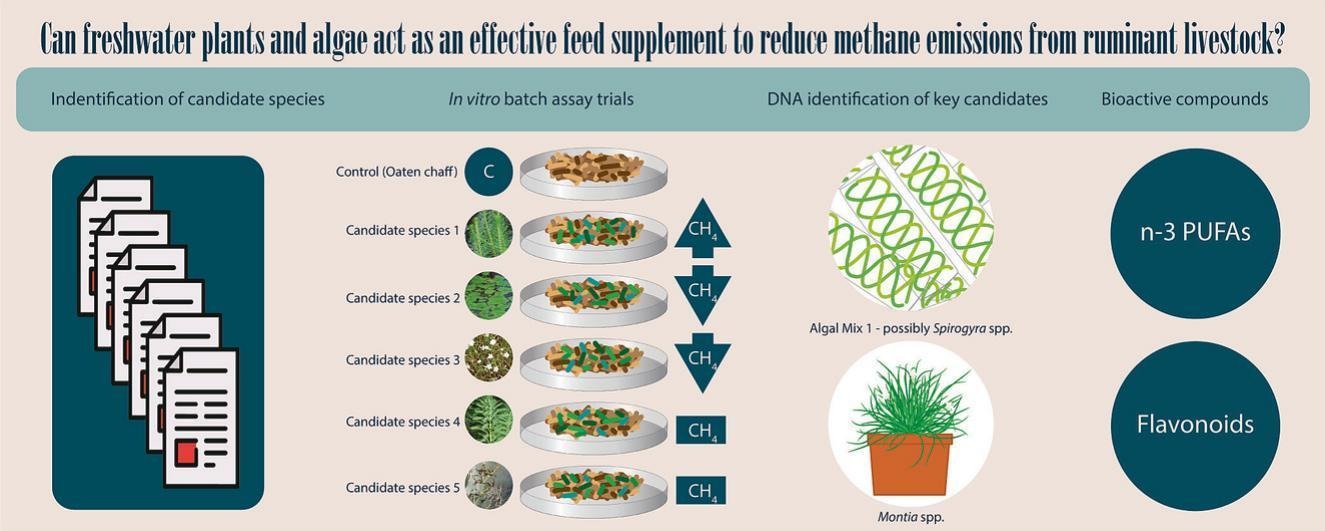Can freshwater plants and algae act as an effective feed supplement to reduce methane emissions from ruminant livestock?
March 01, 2024 | Science of The Total Environment |
Introduction: Livestock contribute significantly to global greenhouse gas emissions, with methane production being a major concern. The marine red algae, Asparagopsis taxiformis, has shown promise in inhibiting methane production in livestock as feed additives, but challenges in scaling up production exist. In this study, researchers from Deakin University explore Australian freshwater plants and algae as potential feed supplement with methane-inhibiting properties.
Key findings: Three algal mixes and one plant species (Montia australasica) demonstrated the potential to reduce methane emission in in vitro batch assays. The algal mixes, particularly one dominated by Spirogyra maxima, and M. australasica showed promising results, suggesting an optimum dose for methane reduction. Fatty acids in Algal mix 1 and flavonoids like apigenin and kaempferol in M. australasica were identified as potential contributors to methane reduction. Importantly, the mineral composition of these samples indicated their safety for livestock consumption at a 20% inclusion rate.
Read more

Fig. | Graphical Abstract.
Viewed Articles
March 01, 2024 | Science of The Total Environment |  Introduction: Livestock contribute significantly to global greenhouse gas emissions, with methane production being a major concern. The marine red
Read More
May 22, 2020 | Frontiers in Sustainable Food Systems |  Introduction: Global pathways consistent with the Paris Agreement rely on substantial reductions in agricultural methane (CH4) and N2O alongside
April 27, 2021 | Environmental Science and Pollution Research | Source |  Introduction: This review, led by scientists from the Department of Environmental Sciences at Central University of Jharkhand
November 12, 2024 | Nature Food | Source |  Introduction: While nitrogen (N) inputs are essential for crop productivity, N losses from croplands contribute to major environmental issues, including cli
September 25, 2022 | Journal of Cleaner Production | Source |  Introduction: Ultra-processed foods (UPFs) exacerbate the global food system’s failure by driving environmental harm, undermining nutriti
January 3, 2024 | Nature Communications | Source | Introduction: Conventional intensive farming boosts yields but also drives GHG emissions, soil degradation, and climate vulnerability, especially in






